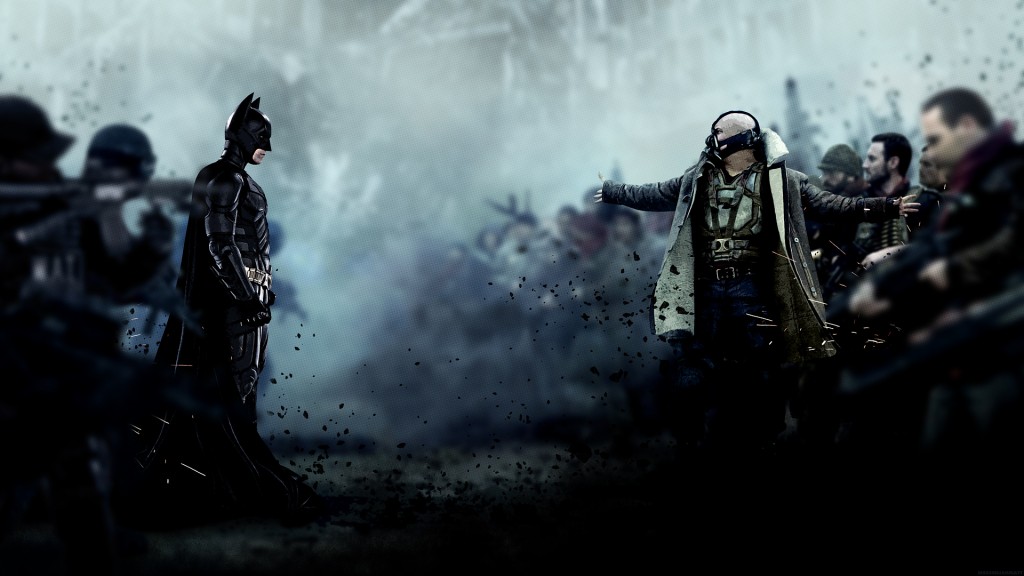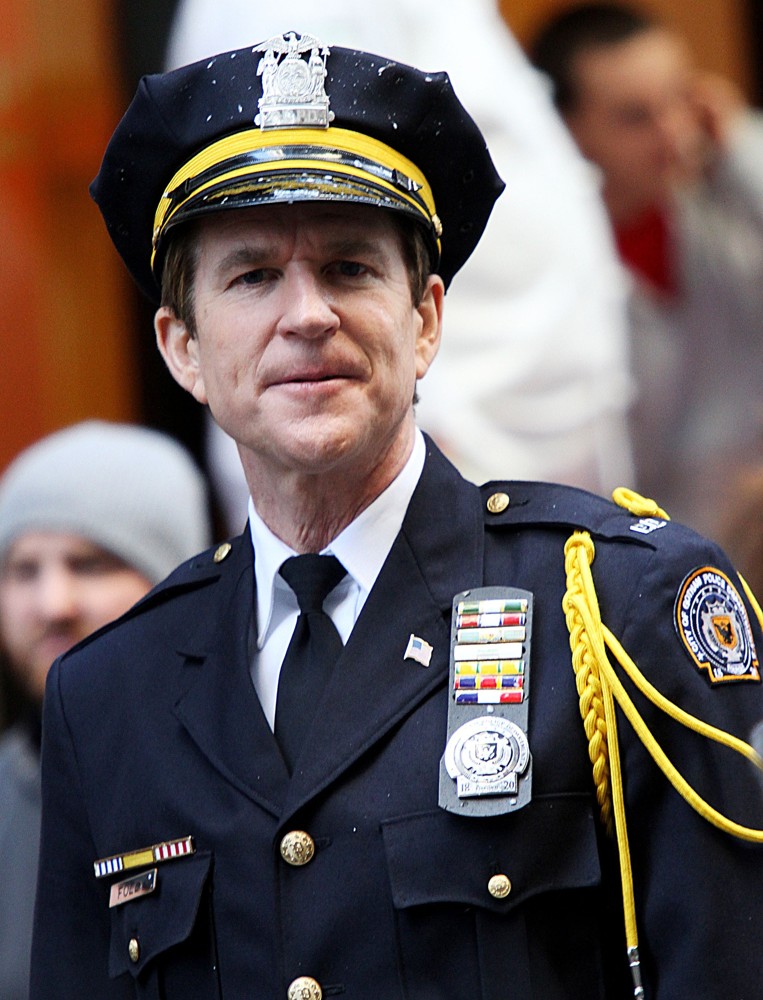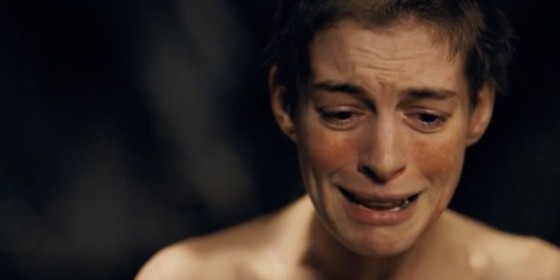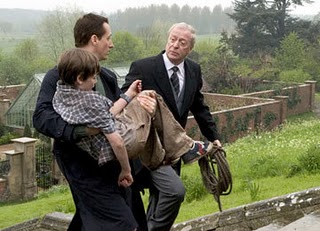Alex writes about why he cared about Batman so much, why some don’t understand the Nolan hype, and why being blinded by optometry technology sucks.
A couple of weeks ago, James and I released our podcast on The Dark Knight Rises. I was worried it would sound like I hated the movie, and according to some listeners it kind of does, which is not entirely the case. While I still believe everything I said on the podcast, I also believe I really like The Dark Knight Rises, and I definitely love large sections of it. It’s probably not up to par with the rest of the trilogy, but that doesn’t mean it isn’t a good movie. And since I’m a Christopher Nolan fanboy (always) and apologist (sometimes), I’m not entirely ready to stop thinking about it, and I’m damn sure going to apologize for its flaws.
I suppose it’s important to note here that I have literally no idea why I feel compelled to say anything more about The Dark Knight Rises than I already have. Over an hour of my thoughts exist on our website (and on iTunes!), and I still believe everything I said, if only because I said it approximately ten days ago. This fanboyism is an odd feeling; I tend to cherish objectivity as much as possible when watching a film, but in this case I feel like there might be even less than usual. However, one of the biggest flaws of The Dark Knight Rises is that it tries to say too much, so perhaps it makes sense for me to do the blogging version of the same.
This film, as opposed to its predecessors Batman Begins and The Dark Knight, deals with a much larger world of characters that we are all supposed to care about. Instead of succeeding in getting us to care about Bruce Wayne, it attempts (and fails) to get us to care about everybody, a problem that often exists in modern blockbuster cinema. In the modern action film, Earth as a whole is perpetually in danger, be it from the Tesseract in The Avengers, or the exact same thing but with a different name in Transformers, or the exact same thing with the exact same name in Captain America: The First Avenger. This is a problem seemingly brought on by the advent of special effects technology: once it is possible to create anything, everything is an option. As the scale of your film needs to grow, there’s no reason to stop at anything less than the destruction of the entire world. While only Gotham City (and, one would assume, its surrounding area) are in imminent danger during the climax of The Dark Knight Rises, that’s more or less the totality of the Batman world Nolan has familiarized us with. The whole world isn’t really at risk, but the whole world we know is, and we’re supposed to care about everybody within it.
It’s almost impossible to care as much about such a large number of people in a movie, if only because no reasonable film has time to set up that many characters. In The Dark Knight Rises, the best-case scenario for the viewer is that they are emotionally invested in Bruce Wayne, Selina Kyle, John Blake, Commissioner Gordon, and Alfred Pennyworth (although there’s a solid chance he’s not even in Gotham once shit gets real). The Dark Knight Rises’ best moments are ones that show one or two of these characters dealing on a small-scale personal level, like when Wayne climbs out of the prison he has been banished to, or when Batman reveals his secret identity to Commissioner Gordon (who doesn’t have the Magic Orphan Eye superpower that John Blake appears to possess). These echo the best moments in the previous films, when we see Batman triumphantly swoop away to close Begins, or when he takes the blame for Harvey Dent’s murders to become The Dark Knight. These moments are why we got attached to these films in the first place, and since there are fewer of them in the new film, as the film focuses on the grander moments, we simply care less about what happens to anybody. And for people that were kind of already on the fence about the form in general, that won’t help the way they see the movie.
I often find myself defending Christopher Nolan’s action movies to those that don’t like them. This seems like something I shouldn’t feel compelled to do, but that’s only because I’m never really defending them; more than anything, I’m trying explain a phenomenon of sorts.
The reason Nolan has become a sort of god auteur in the arena of blockbuster film is that he takes a genre seriously that nobody else does. The blockbuster is the dominant form of North American pop culture, yet almost nobody makes serious versions of these movies. The Avengers was too quippy (and thematically pretty empty) to really find interesting, and Total Recall was too terrible to take its John Cho monologue about objectivity and subjectivity at all seriously. Critics have to watch so many of these movies that, when Nolan takes this style of filmmaking seriously, the critics not only see an enjoyable movie, but a relief from the seemingly unending dread of blockbuster season. And despite my general disdain for film reviews, they have more effect on the way the public views a film than most realize. Seeing a Christopher Nolan movie isn’t just seeing a summer action movie; it’s seeing an important piece of culture, but the only people that think this type of culture is truly important are the people that already like it.
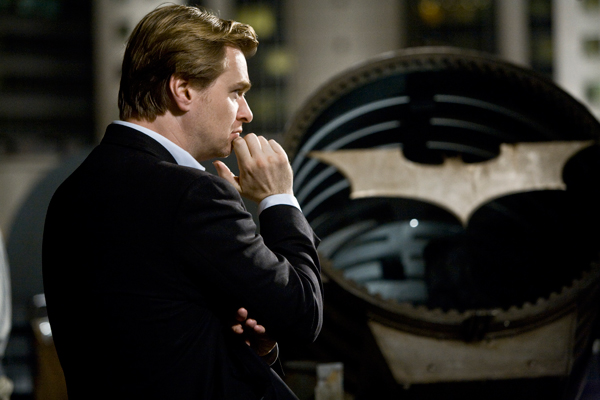
“I’ll get him to punch him, before he punches him, leading to a flurry of punching. Then they’ll chase a nuke, because obvs.”
The majority of the people I explain this to are people who simply aren’t typically interested in big action movies. They’re the people that will see Prometheus because Alien is a great movie, but they’ll ignore The Amazing Spider-Man because they think it’s inessential. They tend to have similar tastes as movie critics, and when their reviews for The Social Network match up, they wonder why they don’t feel the same way about Batman. They simply aren’t into the disbelief necessary for the Batboners to develop. These movies must come around by the end and eventually turn into a hokey, clichéd action film, in order to justify the money the studio puts into them. For some viewers, that doesn’t make sense and adds to the overwhelming dissatisfaction they feel about the movie, but for those willing to forgive, those first two acts of more interesting ideas and story beats are enough to get us invested when it all turns into a boxing match followed by some nuke chasing.
The Dark Knight Rises’ final message is one of valuing the work of a collective; it essentially thanks its legions of fans by having a mass of Gothamites assist in Bane’s defeat. Batman wasn’t important as much as the Bat symbol was; without the assistance of the citizens of Gotham, Bruce Wayne has no chance. The film depicts its world as an economically depressed place for most, but it also says that the human spirit will persevere and things will get better. We shouldn’t go so far as to become domestic terrorism hobbyists like Bane, but gathering as a collective and pursuing a common goal as opposed to going it alone is highly valued in this film.
Similarly, I am not alone in loving Batman. There are legions of fanboys, and we’re all desperately in love with these movies. The Dark Knight Rises is likely the last time a lot of us will get extremely excited over a film; as we get older and smart enough to realize how illogical it is to be excited about stuff like this, it will get harder to be irrational. We’re called fanboys for a reason: only a boy would be stupid enough to casually claim he is emotionally attached to a Christian Bale character and mean it. But with The Dark Knight Rises, we’re still in 2005. It’s a superhero brand of Revertigo, and it makes us all eighteen again. In the months leading up to these films, we have nightmares of the Joker making coffee in our kitchen, or of rescuing Kelly Clarkson from a version of Bane who has decided to terrorize a water park. We were too young for Star Wars, and the Lord of the Rings movies had too many fucking goblins for us to care about. Batman was our trilogy. But now it’s gone, hiding out in an Italian café with Anne Hathaway, and it took the fanboy inside of us with it.
It seems unlikely that I’ve ever been more excited about anything than I was for The Dark Knight, and similarly with The Dark Knight Rises. I’ve lost hours of sleep in anticipation of the films, and the dreams listed above were not the only ones. While working at a video store in the hours leading up to The Dark Knight’s release in July 2008, I did pushups in the middle of the comedy section for no fucking reason other than the overexcitement brought on by playing Batman Begins on the televisions hung throughout the store. I know all of these things are insane, but that’s fine. Bruce Wayne’s psychoses lead him to become a masked vigilante, and mine lead me to care way too much about that fake masked vigilante. I knew these things were illogical as I did them, I just didn’t care. Now, though, I think I might, and that’s the problem.
I will be excited for films again: this is not me drawing a hard line in the sand that says, “You are now an adult who will never care about anything other than remaining comfortably removed emotionally at all times.” When it was announced that a new Terrence Malick film would be gracing film festivals this year, I immediately threw confetti in the air and blew up some celebratory balloons of existentialism. But I will never be as emotionally involved with a film than how I felt at the end of The Dark Knight, or when Bruce Wayne rises out of the prison in its successor. Now I can experience these moments as they unfold before me, but once the movie is over I think, “That Catwoman makeout was the worst idea ever.” I’m less okay with glossing over the more illogical moments in a film now, much like I’m less okay with being illogical in my day-to-day life. I was never going to be eighteen again, and I was fine with that, but now I don’t know that I’ll ever be as excited about anything as I was as an eighteen year old. And that’s much worse.
Assuming I fulfill my life expectancy, it seems plausible and even likely that twenty years of my life will pass in which I don’t watch one of these Batman films. In fact, it seems more likely here than with most other good films, because I know these so well that I feel less inclined to watch them again once they leave theatres. (Once you know every shot, rewatching a film at home, no matter how much you love it, becomes pointless.) I still love making jokes about Thomas Wayne asking a young Bruce why we fall, but there will probably come a time in my life when I wouldn’t get that reference if somebody said it to me.
I recently ran into a woman who used to rent movies from me, a woman who now works in an optometrist’s office (although I suppose I never knew where she worked before). The first thing she said to me was, “I recognize you from somewhere,” before I mentioned I was the movie store guy who unsuccessfully tried to get her to rent Saved! for four years. Despite genuinely enjoying talking to this woman, and laughing a lot while doing so, she was never somebody I would consider a friend. I doubt I thought of her even once since I last saw her. All of our previous interactions revolved around a money for movies transaction, and when I saw her again, she took my money so she could use optometry technology to momentarily blind me. I’m sure she had made fun of me in the past for talking about Batman too much (as I was wont to do for most of 2008), but that was not a topic we broached before I left her office. We didn’t immediately start jumping into a conversation when I walked in either, but when we started actually talking, nothing really seemed to change. I asked about the child she was pregnant with when I last saw her four years ago, and she asked what I do now that my old job is essentially nonexistent. She could still make me laugh, and vice versa. It was a brief run-in, but a thoroughly enjoyable one. I assume I’ll never see her again, but I know that if I do, a momentary refamiliarizing may occur, before we get back to the same enjoyable conversations we had years ago.
I’ve seen The Dark Knight Rises four times now, and as soon as I finish this paragraph I’m going to see it again. I would imagine I’ll see it another few times, because that’s just what I do with Nolan’s Batman movies. I doubt I’ll ever see anything that many times in theatres again, if only because these days I have more varied tastes, and tend to spend more time thinking about movies than I spend actively watching them. And that’s where my more negative comments about The Dark Knight Rises come from – the fact that now I’m older, smarter, and can grow a solid beard. Once I leave the theatre, I can’t remove myself from thinking about the movie I just watched, and pretty much every movie tends to have some significant problems when you think about them for as long as I tend to now. But while I’m still in the theatre, watching Bruce Wayne climb out of a prison in the most triumphant of fashions, a younger version of me has goosebumps, and is still so invested that he feels like he can join in on the masked vigilantism. I may not know why we fall forever, but I know why I fell for these movies. And I never want that feeling to go away, even though it already has. I just need to trust that it can still pick itself back up when it’s really needed.

